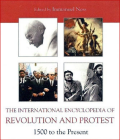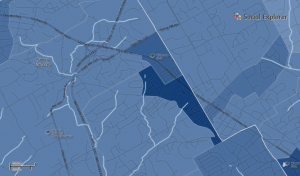
Please join us on Thursday, April 13 at 4 p.m. in Falvey Library’s Speakers’ Corner for a Scholarship@Villanova talk featuring Alessandra Seggi, PhD, Visiting Professor, Department of Sociology and Criminology. Dr. Seggi will present a talk titled “Youth and Suicide in American Cinema: All the Silence We Don’t Talk About.“
A large project, which culminated in the publication of Youth and Suicide in American Cinema: Context, Causes, and Consequences (Palgrave Macmillan, 2022), examined the portrayal of youth and suicide in American films (N=187) from 1900 to 2019, with particular attention to the context, causes and consequences of suicide. It also teased out insidious yet fascinating social dynamics around suicidality involving both the suicidal individual and their friends and family. The analysis concluded that the portrayal of youth and suicide in film is controversial, or at least unbalanced, inconsistent, limited, and at times simplistic. Other times it can be stifling in its brutal honesty, yet rich and thought-provoking. Hence, rather than obliterate or block certain content from reaching audiences, or suggest certain reactions to audiences, young audiences need to think for themselves and question the media.
A proactive approach for audiences to interpret film messages can help youth—a media literacy strategy to embrace as active social players, while watching these films. This is a tool for empowering audiences, and helping them watch and analyze films as engaged citizens, and ultimately “for strengthening young people’s participation in civic and political life” (Hobbs, 2011, p. 421–422). Indeed, only when audiences are able to tease apart the varied, nuanced, transient, complex media messages, are they able to negotiate meaning for themselves, act as engaged social players, and perhaps begin to comprehend suicidality, and “heal the hearts or settle the minds of those left behind in its dreadful wake” (Jamison, 1999, p. 18).
Importantly, silence, by intruding into several interactions, dramatically alters them. Yet, it rarely gets talked about. So, for example, the physical and emotional consequences of suicidality on the suicidal individual are almost never tackled in film. The consequences of suicidality on the bereaved are even more infrequent object of conversation. There are yet other ways for silence to complicate relationships and affect someone’s suicidality. Silence hides complicity, when not voicing our concerns when we have some, or not speaking up in front of injustice, or not seeking help when in a crisis. It also demonstrates how we become complicit in perpetuating injustice, how we might aggravate our condition, or how we might perpetuate a life in suicidal mode, as well as perpetuating the path of least resistance. Only a few films, notably Captain Fantastic, Permanent Record, and Surviving Family, offer a vivid depiction of the desolation that friends and family experience after a suicide. Beyond the Lights shows how being embedded in a web of social relationships can offer the suicidal individual mixed messages—on the one hand, suicidality is not to be talked about; on the other, asking for and receiving help are essential steps in one’s recovery. A few other exceptional films from different eras and with varying styles, such as A Girl Like Her, Something Wild and Full Metal Jacket, showcase how silence exacerbates the consequences of trauma.
This ACS-approved event, co-sponsored by Falvey Library, the Department of Sociology and Criminology and the Department of Communication, is free and open to the public. Light refreshments will be served.
References:
Hobbs, R. (2011). The state of media literacy: A response to Potter. Journal of Broadcasting & Electronic Media, 55(3), 419–430.
Jamison, K. R. (1999). Night falls fast: Understanding suicide. Vintage Books.




